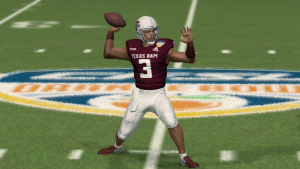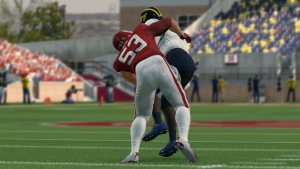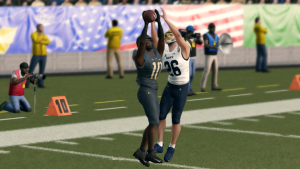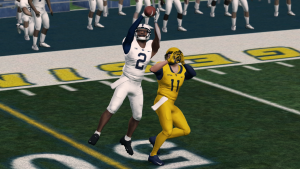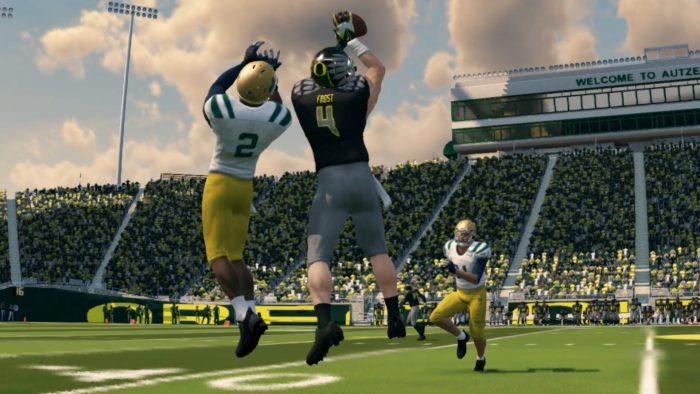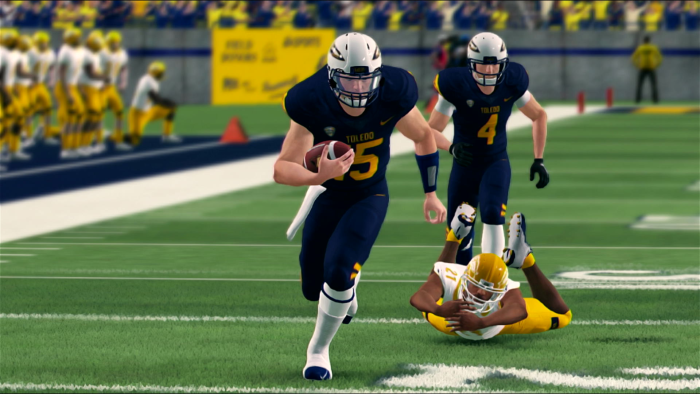
By: Ryan Moreland (@ryanmoreland)
How JTR Works
JTR ranks players by comparison to the league average using as unbiased stats as possible. By unbiased stats, we mean stats that don’t show a preference for one style of play over another. For example, we expect a quarterback in an air raid system to throw the ball more often than a quarterback in a multiple set. So comparing the two based on completions wouldn’t be fair. Once we determine stats that we believe to be unbiased, we create a league average. Outperforming the league average earns a player positive points. Stats that fall below the league average will earn a player negative points. Points for each stat are calculated and combined with a base rating given to each player. The combination results in a player’s JTR metric score. 0 is the worst possible score and 100 is the best possible score.
For QBs, the stats we chose to use are completion percentage, yards per attempt, touchdown percentage, interception percentage, passing yards per game, and unique rushing index. The rushing index attempts to exclude sacks from a quarterback’s rush totals to get a more accurate sense of them as a runner. Also, QBs cannot take negative points from the rushing index (outside of fumbles). This is because a running ability for a quarterback is a plus, but not a requirement.
JTR is not a predictive metric. It cannot tell the future. It can only measure what a player has done up to that point.
Note: This is a complicated system that is difficult to explain in an easily digestible way. If you have more questions about how it works, please reach out. We would be more than happy to answer your questions.
JTR Rankings
| Rank (Last Week) | Player | Team | JTR Score (Change) |
| 1 (1) | Loki Gunderson | Clemson | 94.275 (-5.351) |
| 2 (2) | Del Toro | Notre Dame | 91.601 (+3.614) |
| 3 (7) | Ludwig Friedman | Georgia | 86.737 (+4.607) |
| 4 (4) | Shaker Mayflower | Pittsburgh | 80.889 (-3.662) |
| 5 (3) | Mateo Walker | Miami | 78.923 (-5.873) |
| 6 (10) | Avery Ware | Texas | 78.440 (+1.074) |
| 7 (9) | Baker Thomas | Auburn | 77.737 (-1.847) |
| 8 (5) | Dylan Shumate | Illinois | 77.593 (-5.046) |
| 9 (6) | Zeus Claydon | Florida State | 77.559 (-4.607) |
| 10 (13) | Sean Keohane | Kent State | 77.024 (+1.337) |
| 11 (16) | Ryan Moreland | Oklahoma State | 74.403 (+3.195) |
| 12 (8) | Derrick Power | Oklahoma | 74.241 (-6.422) |
| 13 (14) | Beau Dale | Florida | 73.462 (-1.873) |
| 14 (15) | Ayden Martinez | North Carolina | 72.802 (-1.534) |
| 15 (17) | Brantley Gauci | Oregon | 72.042 (+1.341) |
| 16 (12) | Charlie Sammons | Kentucky | 69.107 (-7.725) |
| 17 (18) | Greg Cooksey | Eastern Michigan | 69.093 (+2.634) |
| 18 (11) | Topher Foreman | Michigan | 68.722 (-8.322) |
| 19 (23) | Sam Dobbins | Toledo | 66.781 (+11.256) |
| 20 (20) | McKade Alber | Boise State | 66.188 (+2.297) |
| 21 (21) | Tony Ellis | West Virginia | 65.563 (+1.785) |
| 22 (19) | Cece Range | Alabama | 64.468 (-1.393) |
| 23 (22) | Andrei Belov | Ohio State | 63.007 (+2.042) |
| 24 (24) | Terry Olliff | Northern Illinois | 60.903 (+5.435) |
| 25 (25) | Kyson Carey | Bowling Green | 52.660 (+10.096) |
| 26 (26) | Owen Dart | Ohio | 52.357 (+9.464) |
Findings
The best improvement in score this week belongs to Toledo QB Sam Dobbins. Dobbins had 231 passing yards, 188 rushing yards, and four total touchdowns in a decisive win over Kent State. Other big improvers include Bowling Green’s Kyson Carey and Ohio’s Owen Dart.
You will notice that the biggest improvers are closer to the bottom of the list than the top. This is to be expected. Since this is a comparative metric, it is difficult to improve on being one of the best in the league. However, it is a lot easier to catch back up from the bottom. Two of our three best improvers didn’t move in the rankings and stayed at 25 and 26.
Dobbins did move up four spots in our rankings, but one player climbed further. Oklahoma State’s Ryan Moreland moved five spots up the leaderboard thanks to a strong performance against Michigan. The next best climbers were Dobbins and Texas’ Avery Ware.
